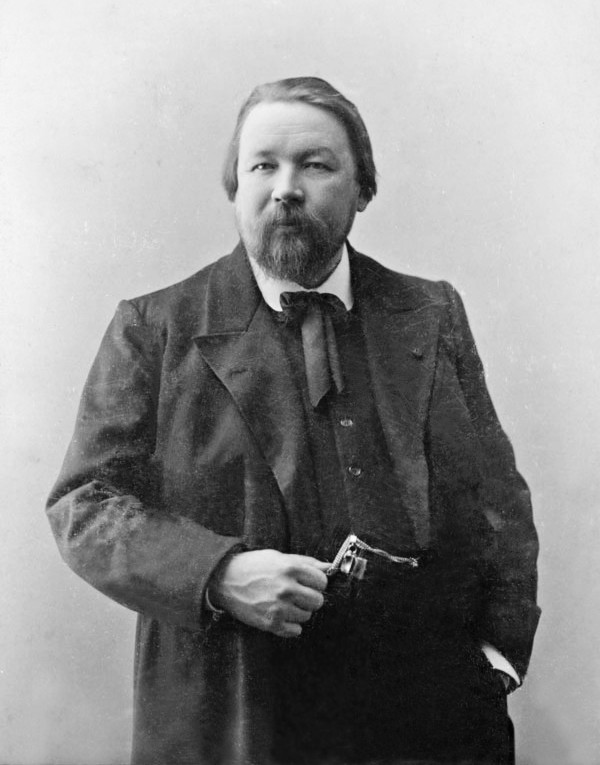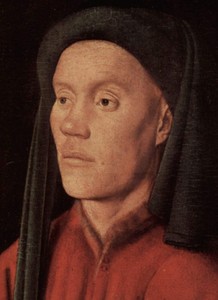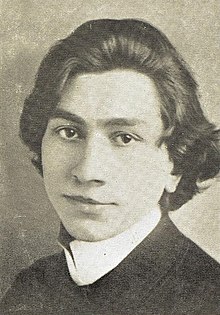
Mikhail Mikhailovich Ippolitov-Ivanov |
Mikhail Ippolitov-Ivanov
When you think about the Soviet composers of the older generation, to which M. Ippolitov-Ivanov belonged, you are involuntarily amazed at the versatility of their creative activity. And N. Myaskovsky, and R. Glier, and M. Gnesin, and Ippolitov-Ivanov actively showed themselves in various fields in the first years after the Great October Socialist Revolution.
Ippolitov-Ivanov met the Great October as a mature, mature person and musician. By this time, he was the creator of five operas, a number of symphonic works, among which Caucasian Sketches became widely known, and also the author of interesting choirs and romances that found excellent performers in the person of F. Chaliapin, A. Nezhdanova, N. Kalinina, V Petrova-Zvantseva and others. The creative path of Ippolitov-Ivanov began in 1882 in Tiflis, where he arrived after graduating from the St. Petersburg Conservatory (composition class of N. Rimsky-Korsakov) to organize the Tiflis branch of the RMS. During these years, the young composer devotes a lot of energy to work (he is the director of the opera house), teaches at a music school, and creates his first works. Ippolitov-Ivanov’s first composing experiments (the operas Ruth, Azra, Caucasian Sketches) already showed features characteristic of his style as a whole: melodic melodiousness, lyricism, gravitation towards small forms. The amazing beauty of Georgia, folk rituals delight the Russian musician. He is fond of Georgian folklore, writes down folk melodies in Kakheti in 1883, and studies them.
In 1893, Ippolitov-Ivanov became a professor at the Moscow Conservatory, where in different years many well-known musicians studied composition with him (S. Vasilenko, R. Glier, N. Golovanov, A. Goldenweiser, L. Nikolaev, Yu. Engel and others). The turn of the XIX-XX centuries. was marked for Ippolitov-Ivanov by the beginning of work as a conductor of the Moscow Russian Private Opera. On the stage of this theater, thanks to the sensitivity and musicality of Ippolitov-Ivanov, P. Tchaikovsky’s operas The Enchantress, Mazepa, Cherevichki, which were not successful in productions of the Bolshoi Theater, were “rehabilitated”. He also staged the first productions of Rimsky-Korsakov’s operas (The Tsar’s Bride, The Tale of Tsar Saltan, Kashchei the Immortal).
In 1906, Ippolitov-Ivanov became the first elected director of the Moscow Conservatory. In the pre-revolutionary decade, the activities of Ippolitov-Ivanov, the conductor of the symphonic meetings of the RMS and concerts of the Russian Choral Society, unfolded, the crown of which was the first performance in Moscow on March 9, 1913 of J. S. Bach’s Matthew Passion. The range of his interests in the Soviet period is unusually wide. In 1918, Ippolitov-Ivanov was elected the first Soviet rector of the Moscow Conservatory. He travels to Tiflis twice to reorganize the Tiflis Conservatory, is a conductor of the Bolshoi Theater in Moscow, leads an opera class at the Moscow Conservatory, and devotes a lot of time to working with amateur groups. In the same years, Ippolitov-Ivanov creates the famous “Voroshilov March”, refers to the creative heritage of M. Mussorgsky – he orchestrates the stage at St. Basil’s (Boris Godunov), finishes “The Marriage”; composes the opera The Last Barricade (a plot from the time of the Paris Commune).
Among the works of recent years are 3 symphonic suites on the themes of the peoples of the Soviet East: “Turkic fragments”, “In the steppes of Turkmenistan”, “Musical pictures of Uzbekistan”. The multifaceted activity of Ippolitov-Ivanov is an instructive example of disinterested service to the national musical culture.
N. Sokolov
Compositions:
operas – On a wreath to Pushkin (children’s opera, 1881), Ruth (after A. K. Tolstoy, 1887, Tbilisi Opera House), Azra (according to a Moorish legend, 1890, ibid.), Asya (after I. S. Turgenev, 1900, Moscow Solodovnikov Theatre), Treason (1910, Zimin Opera House, Moscow), Ole from Norland (1916, Bolshoi Theatre, Moscow), Marriage (acts 2-4 to an unfinished opera by M. P. Mussorgsky, 1931, Radio Theatre, Moscow ), The Last Barricade (1933); cantata in memory of Pushkin (c. 1880); for orchestra – symphony (1907), Caucasian sketches (1894), Iveria (1895), Turkic fragments (1925), In the steppes of Turkmenistan (c. 1932), Musical pictures of Uzbekistan, Catalan suite (1934), symphonic poems (1917, c. 1919, Mtsyri, 1924), Yar-Khmel Overture, Symphonic Scherzo (1881), Armenian Rhapsody (1895), Turkic March, From the Songs of Ossian (1925), Episode from the Life of Schubert (1928), Jubilee March (dedicated to K. E Voroshilov, 1931); for balalaika with orc. – fantasy At gatherings (c. 1931); chamber instrumental ensembles – piano quartet (1893), string quartet (1896), 4 pieces for Armenian folk. themes for string quartet (1933), Evening in Georgia (for harp with woodwind quartet 1934); for piano – 5 small pieces (1900), 22 oriental melodies (1934); for violin and piano – sonata (c. 1880), Romantic ballad; for cello and piano – Recognition (c. 1900); for choir and orchestra – 5 characteristic pictures (c. 1900), Hymn to Labor (with symphony and spirit. orc., 1934); over 100 romances and songs for voice and piano; over 60 works for vocal ensembles and choirs; music for the play “Ermak Timofeevich” by Goncharov, c. 1901); music for the film “Karabugaz” (1934).
Literary works: Georgian folk song and its current state, “Artist”, M., 1895, No 45 (there is a separate print); The doctrine of chords, their construction and resolution, M., 1897; 50 years of Russian music in my memories, M., 1934; Talk about musical reform in Turkey, “SM”, 1934, No 12; A few words about school singing, “SM”, 1935, No 2.




